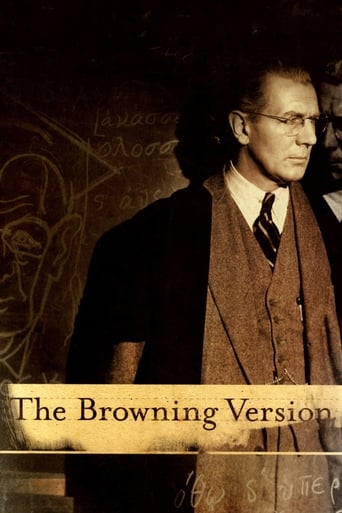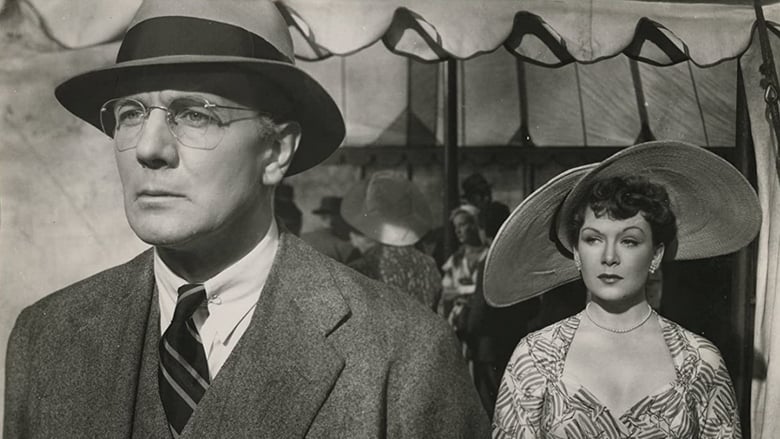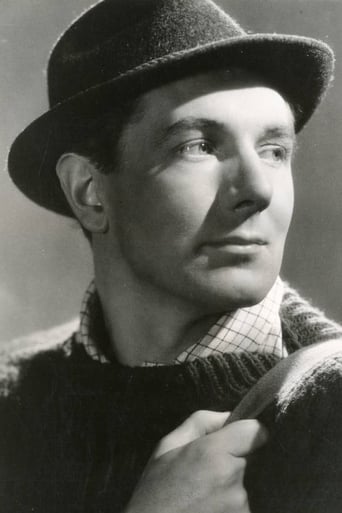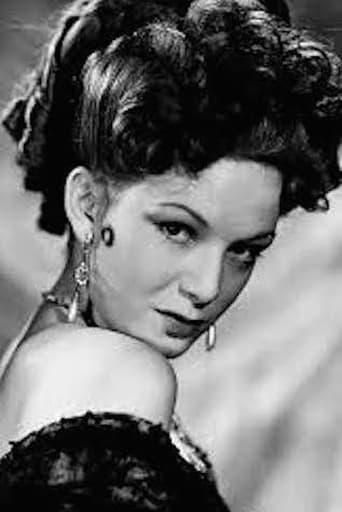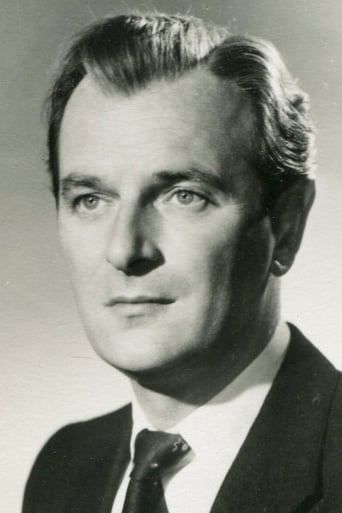The Browning Version (1951)
Andrew Crocker-Harris has been forced from his position as the classics master at an English public school due to poor health. As he winds up his final term, he discovers not only that his wife, Millie, has been unfaithful to him with one of his fellow schoolmasters, but that the school's students and faculty have long disdained him. However, an unexpected act of kindness causes Crocker-Harris to re-evaluate his life's work.
Watch Trailer
Cast


Reviews
I like the storyline of this show,it attract me so much
Very very predictable, including the post credit scene !!!
Simply Perfect
A Masterpiece!
Exactly how does one begin to follow all the erudite reviews already submitted ? I can only echo everything positive already written,in praise of this classic film and it's leading man, Sir Michael Redgrave.How well I recall my introduction to "The Browning Version",on T.V. in1966. Such was my involvement with Andrew Crocker-Harris and his pitiful existence, that the gesture of kindness from Tapwell and the effect it had on his master,quite disarmed me.In the following scene,where Harris trustingly shared his experience with Millie,her cruel rebuff had me almost jumping out of my chair in anger.The poor man's last vestige of dignity had been stripped from him. Ten years later,in 1976,down here in Auckland,I was indeed fortunate to meet Sir Michael,up close and personal,following his live performance in "Shakespeare's People".As I stood trembling,all alone,at the gloomy stage-door of His Majesty's Theatre (sadly,later demolished),I wondered how I was going to address this knighted legend of stage and screen.Finally, the man himself appeared before me,looking pale and tired (I believe he was already in poor health).Sir Michael fixed his gaze on me but spoke no words, leaving me to warble on,nervously singing his praises.I do remember telling him how his performance in "The Browning Version" had continued to haunt me through the years.Despite the very dim light,he graciously granted me his autograph which I treasure to this day,along with his photo and several of his best films on DVD.To affirm Sir Michael's incredible versatility,just view "The Browning Version","The Importance Of Being Earnest"and "The Dam Busters", in that order.You don't get much better than that.
Talk about a sad, pathetic and emotionless guy...he's almost a robot.Most of this film is about a retiring teacher who has no personality, no emotions, no love and doesn't care about anyone. He never stands up for himself and his wife walks all over him. This is what you'll get for about 90% of this film...but wait for the ending.You remember the ending of Scent of a Woman? Remember when you cheered at the speech Pacino gave? Watch this and see a man with no respect givin him by his peers, wife and his students. Watch him get his self respect back from his peers and his students. Watch him redeem himself.I dare you not to cheer or shed a tear when he finally speaks at his final farewell speech to the students. The ending of this film is all about acting. You don't have to yell and scream and show a lot of emotion to get a point across on film. You just have to do what this guy does....be humble...and honest.Wow...what an ending.
This movie is quite good, though it starts off a bit sluggishly and is talky and in black and white and is a serious character study and nobody wrenches off anybody else's head amidst a fountain of gore.Michael Redgrave's performance is almost all interior. He's a cold and distant teacher at what Americans would call a prep school. The kids dislike him. He has no sense of humor, no warmth, and he's critical of their best efforts to translate Latin verse. They do impressions of him behind his back. It comes to his attention that the Headmaster has referred to him, without malice, as "the Himmler of the fifth form." He's retiring due to his health and most of his colleagues and students are happy enough to see him go. His new job will be at a less prestigious school for backward boys and will pay far less. He's not going to get a pension because, as Wilfred Hyde White, the persuasive Headmaster tells him, that would be exceptional, even after eighteen years of service at the school.The future may look a little bleak for Redgrave, but then the present and past are no gift from God either. His wife -- in a one-dimensional role -- is given to tearing him down at every opportunity and is having an affair with a science teacher. At this point I began to experience some vague redintegrations of my marriage. I almost sobbed with pity for the poor slob.Yes, he was once a brilliant scholar and began a verse translation of the Agamemnon of Aeschylus but gave up on it and apparently lost it somewhere along the way. One of his students, Taplow, discovers the lost manuscript, reads it, and gives it back to Redgrave, saying that he found it really exciting. Taplow had previously given him an inexpensive gift, a copy of Robert Browning's version of the Agamemnon, with a Latin inscription, "God favors the gentle teacher." It causes Redgrave to momentarily break down because, after all, he's starved for any kind of love. He treats the incident as a humiliation.But, knowing of his own arid performance as a teacher, and of his wife's infidelity, which is strictly sexual in nature, he gives a brief farewell speech that sounds like a confession. When the sits down, the Headmaster tries to introduce the next speaker but his efforts are eclipsed by applause. I don't know that a two-minute speech could reverse the sentiments of a hundred students and faculty, but it's an extremely touching scene.It may not seem so at first but the movie belongs to a certain sub-genre. Someone (or some group) suffers unspeakable misery with a stiff upper lip and dissolves finally in a cathartic scene. Other examples include "The Mark," "Deliverance," and Kubrick's "Paths of Glory," in which the French soldiers first laugh at a German girl in a saloon singing a simple folk tune and then are swept up in her efforts and hum tearfully along with her.The wife is a weakness. She's given no redeeming qualities, no human features. But the film belongs to Michael Redgrave and his performance is masterful. Forget the light-hearted train passenger in "The Lady Vanishes." This character is an ice sculpture that melts suddenly, completely, devastatingly when he comes face to face with himself.
When I watched the film for the first time, I thought it was a great film. But after repeated viewings, I only found the film to be getting better and better. Anthony Asquith's direction is absolutely brilliant. I don't know if anyone noticed this - The film has music only in the beginning credits and in the end of the film. Asquith used little or no music throughout the film with the exception of the song at the chapel scenes and the music outside the chapel. He was able to involve the audience as closely as possible. Asquith was able to take Terrence Rattigan's great screenplay into a much more higher level. Asquith's attention to little details make the film much more stronger. For Example, he shows the importance of lesser characters like Wilson and Brian. Through their viewpoints about Crocker Harris (Michael Redgrave), we can generally understand what the class feels about Crocker Harris. As for the performance, I thought everyone was great in it especially Michael Redgrave and Nigel Patrick.Through Nigel Patrick (Frank Hunter) and Brian Smith (Taplow), We study what kind of a man Andrew Crocker Harris really is? When he started his teaching career, he had good intentions. But he lost his way during his 18 years of teaching. Unlike Fletcher, He was never appreciated for his contributions. For Example, We find out that Crocker Harris drafted time tables for ten years. But they were issued under Headmaster's signature. And Frank Hunter (Nigel Patrick) tells that he didn't know that Crocker Harris drafted time tables of the school. Crocker Harris is a man who wants to express his interests and his ideas. And he asks Frank about his opinion on his new time table. And he also invites his wife Milly (Jean Kent) to see the new time table. But she replies "You know it bores me to death."Crocker Harris expresses his ideas to the people who are very close to him. For Example, He explains to Taplow about his attachment to the play "Agamemnon." Taplow understood Crocker Harris and presented the book of the play "Agamemnon" to him. Through this charity, we see the slow rebirth of an almost dead character inside. Unlike Taplow, Milly didn't care for the interests and ideas of Crocker Harris. She expressed her disinterest and this tarnished the confidence of Crocker Harris. What I didn't like about Milly is her cruelty towards Crocker Harris. This is where I admire the Nigel Patrick's character Frank Hunter. He ends his relationship with Milly, because of her cruel attitude towards her husband. And he tries to help Crocker Harris through kindness and respect. And Frank tells Crocker Harris that he is not going to ask Crocker Harris to forgive him for his affair with Milly, because Frank find it so hard to forgive himself. Although Crocker Harris failed to give the love Milly wanted, still he tried to express love by giving her the complete freedom to do whatever she liked. Through this freedom, she tried to destroy Crocker Harris psychologically. And this led to his persistent ill health. This is where I completely dislike Milly. Due to his persistent ill health, Crocker expressed his students the reflection of his illness. This is why almost all of his students (except Taplow) disliked him.But through his slow rebirth, Andrew Crocker Harris was able to admit his failures. And through admitting his failures, the students and everyone invited Crocker Harris to the world of Success. And in the end, we can conclude that Crocker Harris will survive and will finish the unfinished work, because of Taplow's appreciation.I rate this film 10 out of 10, because of strong performances, Rattigan's great screenplay, and Asquith's brilliant direction. I also recommend everyone to watch The Winslow Boy (1948). I think that's another great film from Anthony Asquith.

